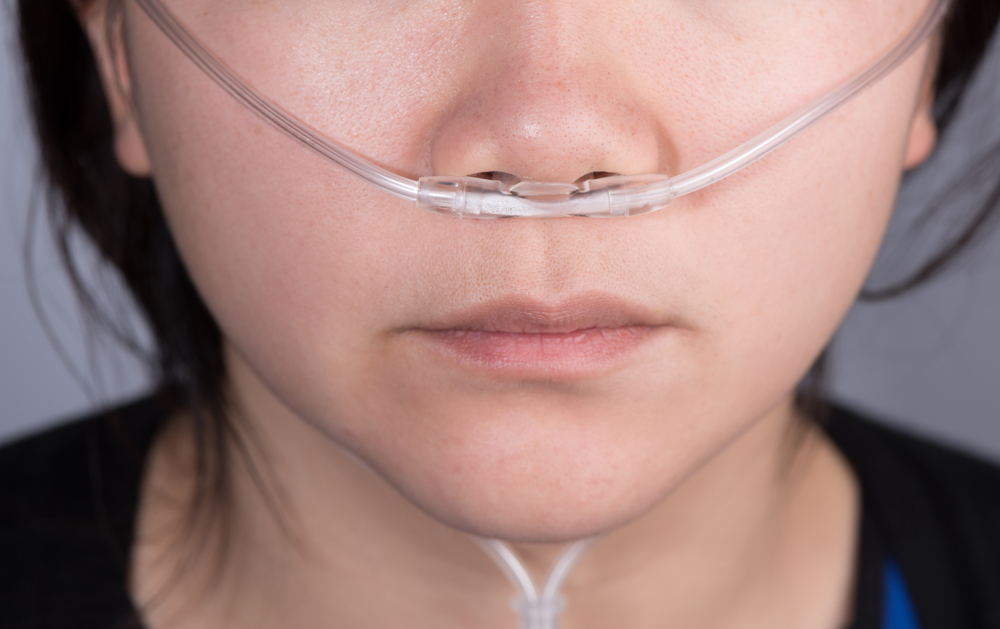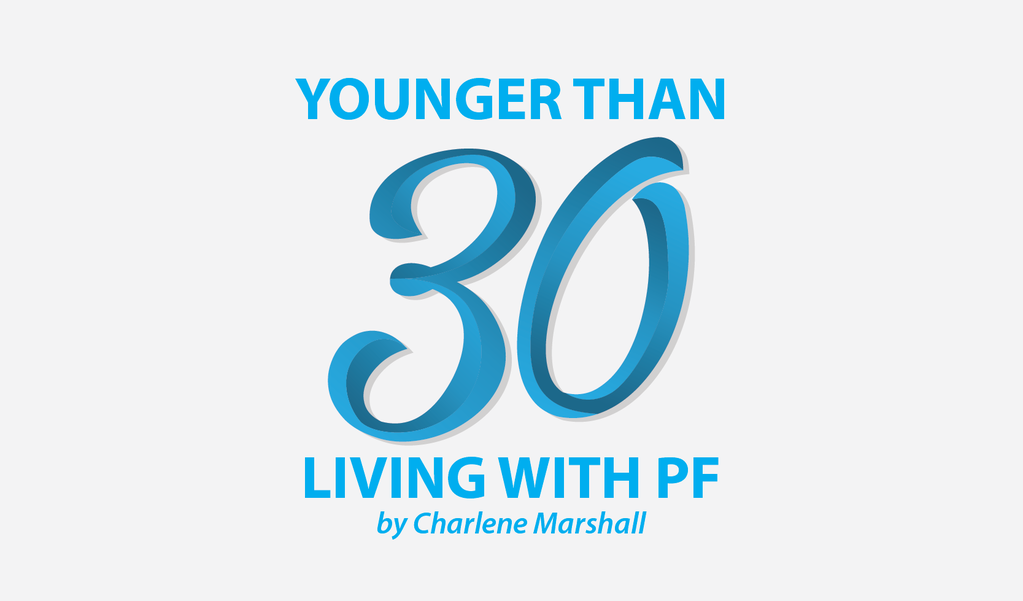What Do You Say? Responding to Awkward Statements and Stares
Written by |


I have grown accustomed to using supplemental oxygen and often overlook people who stare at me, wondering about the young adult who seemingly cannot breathe. While I don’t seem to notice when people stare, it was apparent to friends with me last week. Multiple people asked me, “At what point do you say something or ask people to stop looking at you?”
This was just one of two experiences last week that left me thinking that more awareness is needed about the impact of awkward statements and stares from the public, regardless of intention. I know that people, especially children, stare because they are curious why someone my age is wearing oxygen or needs help carrying extra bags. I also know that people usually are genuine and trying to make conversation when they share experiences of someone they know who has idiopathic pulmonary fibrosis (IPF) like I do, or who has had a double lung transplant. What I have been pondering since these two experiences last week is: What is a good response to these awkward statements and stares?
Let me explain the two experiences, and then I would be curious to hear thoughts from those of you who also rely on supplemental oxygen daily.
I was in line to pick up lunch with a friend last week and I was tethered to my large tank. I noticed three young children and their mom ahead of us in line. I could tell the kids were trying to subtly ask their mom what was across my face based on the hand gestures she was making, a quick mumble about the humidity outside, and hearing the words “grandpa uses it.”
The children were looking back frequently and examining my nasal cannula and my tank. This didn’t bother me, and had I made eye contact with them (or their mom), I may have offered to explain how my tank helps me breathe, especially when the weather is really hot, as it is in Canada these days. I firmly believe that when children are curious, explaining things to them in an age-appropriate way satisfies that curiosity. Once they know, they stop asking questions or staring.
However, I didn’t meet eyes with them, and my friend certainly noticed their stares. She also spotted an elderly couple sitting in the restaurant eating lunch, not taking their eyes off my tank. It did not seem to matter where I stood in the restaurant, these two groups of people kept staring. My friend explained afterward that she felt like they were munching on popcorn while watching a show. I was the spectacle they had come to view that afternoon.
It was interesting to observe because I wasn’t the first one to notice the stares. But it has left me thinking about what I could have said or done differently in that situation to educate them about how it made me feel.
The second experience last week was when I was talking to a customer service representative. While trying to make small talk, the woman asked about my oxygen. When I explained the reason I need it and what is ahead for me on this journey with IPF, she told me about another young adult who had cystic fibrosis and received a double lung transplant last year. Here is where the awkwardness came in: The woman told me, “But she died because I hear double lung transplants are rarely successful.”
I could not believe my ears, as I stood looking at her in disbelief, that she felt it necessary to tell me this. The funny thing is that this isn’t the first time something like this has happened when a stranger tells me of someone they know who has had a transplant but since has died. My friend was very upset and told me what she wanted to say afterward, although I am glad she didn’t because I am confident this customer service representative was just trying to make conversation. That said, is it appropriate not to respond to those types of comments? I didn’t know what to do, so all I said was that I was sorry for her loss.
For those of you who have experienced something similar in your journey with IPF, what would you say or do in either of those situations?
***
Note: Pulmonary Fibrosis News is strictly a news and information website about the disease. It does not provide medical advice, diagnosis, or treatment. This content is not intended to be a substitute for professional medical advice, diagnosis, or treatment. Always seek the advice of your physician or other qualified health provider with any questions you may have regarding a medical condition. Never disregard professional medical advice or delay in seeking it because of something you have read on this website. The opinions expressed in this column are not those of Pulmonary Fibrosis News, or its parent company, Bionews Services, and are intended to spark discussion about issues pertaining to pulmonary fibrosis.







Alice Ketchersid
I find that most adults assume that I have COPD. When I do bother to tell them I have IPF, and explain what it is- I spend the next 15 minutes making them feel better.
John Parks
Alice, Yep, it seems to be
a pain to take the time, but look at it as being... each time you go through your explanation you are spreading the word as well as educating someone in the public about something he/she may have had no knowledge of or about. Our time is shorter than the time alotted to others. One of many positive activities we can do is helping the public understand what you are having to live with.
Santa John
John Parks
Santa John here: I read your article and chuckled inwardly. Not because the article contained any overtly funny material, but I have recently had to upgrade my supplemental oxygen for the first time since my IPF diagnosis in March 2014. I have become sensitive to comments and questions posed by young children. Kids often say "that man looks like or could be Santa". White beard and longer white hair are there because I do, in fact,
play Santa at a local mall for a "Christmas photo with Santa" provider during Nov/Dec. I now wear Oxyview glasses and generally wear a backpack to carry a B or D cylinder for supplementary O2. I tell young kids that my equipment supplies special "North Pole" air when I am in more temperate climes. So far they have accepted the fib with a knowing look. The story works well enough to use it during the season. Using the glasses connected to a small tank underneath the Big Red Suit may not even be noticed. I hope that'll be the case!
Not being able to play Santa would be heartbreaking.
Stay tuned!
PS Oxyview Glasses, smaller tank and back pack under the costume were suggested by my pulmonary Doctor's assistant at U of Penn's Harmon Lung Center in Philadelphia. Thank you Jennifer!
I realize stares, comments and questions are a source of consternation for most of us. A bit of humor helps at times.
John
Jackie Conrad
I have severe COPD and the same thing happens! All i say is i need this to breathe better! Most people i have had this experience with are no better off after i waste my breath for 15 minutes explaining!
Don
IMG_4249.JPG
I wife designed a costume for my oxygen tank that I bring in stage with me!
John Parks
Hi Don,
I'll bet there are many others who would love to view a photo of you, your cylinder, both in costume!
Thanks for telling us about it.
Santa John
BEV HART
PEOPLE SO NOT UNDERSTAND IT IS JUST AIR INSTEAD OF A PILL
Beth Bushey
Usually my facial expressions speak for me, and I find a gentle stare back at adults is usually enough to stop them from staring....(they should know better anyway) Kids don't bother me as much as adults because for them it is simple curiosity. The thoughtless comments from people who should know better are a different story, and I'm sure I would have had a sarcastic comment for the customer service rep too.
Marian Morrissey
I loved your story. I say Hello when kids stare.and tell them never smoke even do it's not from smoking .and my tube doesn't go in to my Brain ?.but When Adult stare I stare right back.I had a woman stare at me she stood right in front me just looking at me up and down .my Daughter's and Grandchildren where with me.my Daughter's .just said take a picture last longer .I have sarcidosis stage 3/4 and CKD.so I have to use wheelchair. Saying Hello gives let's them no .YES I'm Human ??we have to laugh or we sit crying Take Care all.
Terry
My husband often gets asked, "How long you been on oxygen?" He usually tells them, "since I got sick August 10, 2016". Most shake their head in understanding but a few will push for more details and since my husband is a real champ, he will joke about it, explaining he is waiting for a new set of lungs.
We get alot of "We'll keep you in our prayers" and we'll smile and say thank you. The stares don't bother him anymore.
Janice Campbell
Hi
I fully agree with you on no1 scenario. Children accept quite readily when told the truth.
No2...........Well! Sadly those who have not experienced any type of trauma themselves are only too ready to put their oar in! Not wishing to be out-done they will ALWAYS know of someone worse off than you! You could try being really sarcastic.....reach down (if you can), take one of your shoes off and throw in their direction coupled with the question 'here you go. Try and walk in MY shoes for a week and see how YOU get on with it!
Evelyn Hudson
I believe it's all relative. I'm so grateful (at 69 yrs,) to be able to get around, going to the stores, to church, to family events that I don't care what people say. I ignore them. I know of people who cannot leave their house. I guess I'm just an optomist.
Terry
A positive attitude is wonderful. May God continue to bless you with the strength to keep going.
Lea
I have both lung disease and autism and I can add that sometimes autistic people just stare. It is not something of which we are always aware. We are anxious about staring, so we find a non responsive thing to stare at. I try to answer all questions as if a child just asked them. "The tube helps me breathe!"
John Parks
Ms Lea I can only try to know what you go through every day.
Just wearing a cannula and O2 support cylinder or compressor and deal with being on the "spectrum" as well. I wish you well. Santa John (who taught special ed) before retiring
to IPF and Santa.